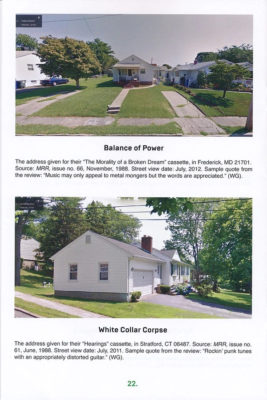-
×
 Expériences pédagogiques Workshop La Plata 01. - Collectif - Zeug
1 × 13,00 €
Expériences pédagogiques Workshop La Plata 01. - Collectif - Zeug
1 × 13,00 € -
×
 Anthologie Douteuses (2010—2020) - Élodie Petit & Marguerin Le Louvier
1 × 22,00 €
Anthologie Douteuses (2010—2020) - Élodie Petit & Marguerin Le Louvier
1 × 22,00 € -
×
 Vera Icona, Abécédaire de l’image scène — Véronique Caye
1 × 16,00 €
Vera Icona, Abécédaire de l’image scène — Véronique Caye
1 × 16,00 € -
×
 Norovirus - Orgie en mers chaudes - Claude Grétillat
1 × 8,00 €
Norovirus - Orgie en mers chaudes - Claude Grétillat
1 × 8,00 € -
×
 Auprès, au sein — Julien Van Anholt
1 × 18,00 €
Auprès, au sein — Julien Van Anholt
1 × 18,00 € -
×
 Bruits - Emmanuel Madec
1 × 15,00 €
Bruits - Emmanuel Madec
1 × 15,00 € -
×
 Holy etc. - Fabienne Radi
1 × 12,00 €
Holy etc. - Fabienne Radi
1 × 12,00 € -
×
 Gnose & Gnose & Gnose - Aymeric Vergnon-d'Alençon
1 × 25,00 €
Gnose & Gnose & Gnose - Aymeric Vergnon-d'Alençon
1 × 25,00 €
Sous-total : 129,00 €






















